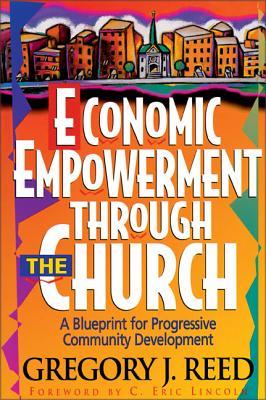The Kingdom of God is not only spiritual -- it is intensely practical. The church today must move beyond its traditional role if it is to truly fulfill its mission. It can no longer respond only to spiritual needs and speak only to people's hearts. The church is called to be a force for change in the world, especially where the needs are greatest: the inner-city neighborhoods where crime, violence, and unemployment are the order of the day. Economic Empowerment Through the Church is a practical book that shows churches how to become a force for revitalization in their community by means of "economic empowerment"-- by becoming involved in the everyday, economic life of their communities. It shows churches how to structure themselves, how to avoid tax problems, what businesses they can operate without jeopardizing their tax-exempt status, and step-by-step guidelines for implementing ancillary operations such as real estate, day care centers, drug abuse rehabilitation centers, housing projects, and others. The book includes checklists that help churches avoid missing crucial steps, as well as sample documents and forms.

Economic Empowerment Through the Church: A Blueprint for Progressive Community Development
The Kingdom of God is not only spiritual -- it is intensely practical. The church today must move beyond its traditional role if it is to truly fulfill its mission. It can no longer respond only to spiritual needs and speak only to people's hearts. The church is called to be a force for change in the world, especially where the needs are greatest: the inner-city neighborhoods where crime, violence, and unemployment are the order of the day. Economic Empowerment Through the Church is a practical book that shows churches how to become a force for revitalization in their community by means of "economic empowerment"-- by becoming involved in the everyday, economic life of their communities. It shows churches how to structure themselves, how to avoid tax problems, what businesses they can operate without jeopardizing their tax-exempt status, and step-by-step guidelines for implementing ancillary operations such as real estate, day care centers, drug abuse rehabilitation centers, housing projects, and others. The book includes checklists that help churches avoid missing crucial steps, as well as sample documents and forms.